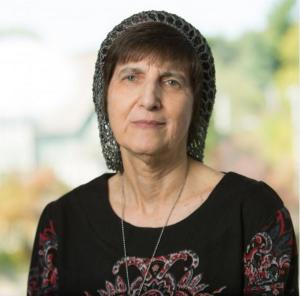
(By Donna Halper) First, I find it disappointing that some comments are attacking Nicole Sandler’s attitude. (You can read our interview with Nicole Sandler HERE.) She’s not alone in feeling frustrated and upset that the industry she loves has shut her out. I feel that every day of my life. I was in broadcasting for nearly four decades, as a deejay and a music director, an assistant PD (they rarely appointed women to PD positions in the 70s and early 80s, no matter how much experience they might have), and then I reinvented myself as a consultant. I worked in small and medium markets, creating winning stations, and training some folks who went on to become major market talent. But when media consolidation caused most small and medium stations to get bought up by larger corporations, many of us lost our jobs. Being a survivor, I reinvented myself yet again and got a PhD at age 64. These days, I teach about media. But it’s not the same as being in the industry — even if what radio is today is SO different from what it was when I was in it.
I’d like to believe I still have some valuable perspectives. When I’m a guest on someone’s show, I get a lot of callers who want to talk with me. I’ve written several books and a number of freelance articles about broadcasting and I do a lot of public speaking. But sad to say, nobody has offered me a radio job in a long while — even though I have a pretty impressive resume and a list of accomplishments I’m proud of. I can suggest a number of reasons why my phone isn’t ringing, and I am well aware that there are many guys who were also pushed aside as a result of media consolidation. The bottom line — and this is not just a problem in radio — is many companies don’t want to hire older talent because they might have to pay us more; there’s a myth we’re set in our ways (not true — I reinvented myself numerous times and I’m not the only one).
There’s also a myth older workers are inflexible: again, not true — it’s radio that seems to be inflexible in how it has failed to attract a new generation of young fans. The other day, I asked some of my college-age students how many listened to radio that day, and no hands went up, although some said they listen in the car. When I was a kid, I couldn’t imagine a better job than being a deejay, but few kids today have that dream. Meanwhile, the experience and expertise of so many of us — and our ideas for revitalizing the industry we still love — are ignored. I hope Nicole finds another gig. I hope a lot of the folks who were unfairly let go as radio downsized get new chances. But criticizing Nicole and avoiding the very real problems she is discussing (which include ageism, and yes, maybe even a bit of sexism) won’t make those problems go away.
Donna L. Halper, PhD is an Associate Professor of Communication & Media Studies at Lesley University in Cambridge, Massachusetts. Her website is www.donnahalper.com.






Ageism in radio? Have you looked at the CEOs and top management? Most of them are over 55. Have you looked at the station websites and looked at the on air staff? Most of them have grey hair. I don’t think one can make a generalization about radio ignoring older more experienced talent. Most of the top DJs in NYC are over 50.
By the same token, it’s important to grow and reinvent oneself, and the author here did. Do you really want to play music by and for people half your age? That’s basically what Elvis Duran is doing.
Once again, I have to pipe in. Steely eyed focus and assertiveness in YOUR OWN lane. Trying on various hats that don’t fit and not being very good at them is what will lose you a job, not your age. I’m sure there are jerks out there who care about such things, but as someone in their 50’s myself, who owns a business and is a hiring manager AND a network news anchor, my “don’t take your eye off the ball” attitude landed me at 3 networks, while keeping my eye on growing my company. When I hire people, I look at how much DAILY experience they have, what kind of attitude they have, what they can add to my client’s experience and how hard they’re willing to work for it. I give loads of people chances, they can be 22 or 82, I care not. If they know today’s technology, work fast and hard and are loyal, they’re in. If they’re all over the place, did news one day and liked it, or someone once said they had a good voice and should try it out, or they did sales, but fashioned themselves a journalist, or were an award winning deejay and always wanted to “read news” (but not write it). I could go on! I’ve had very famous people apply, the voice of this or that, but when it comes down to the hard work that is radio today, they were out, faster than I could have ever imagined. It’s all about the attitude and willingness to continue to work very hard EVERY SINGLE DAY!
Quite so, stogieguy7.
Corporate radio has had its head inserted so far up its own highly-polished, stain-free and Fabreeze-fresh wazoos for so long, it can’t even notice how much bigger outfits than itself are being forced out of business.
I must agree that an almost total lack of concentration on programming and the communications-approaches that are available to us has been the first cause and the bane of operators everywhere.
Considered: Listening to the radio will not immediately reveal the specific age of any presenter. But, it will demonstrate the speaker’s expertise, and their judiciously-acquired “personality”.
What’s happening with radio reminds me of what’s happening to newspapers. Circulation drops, so the owners decide to cut back on content (and employees). The daily paper gets thinner and voila – circulation drops more! Then the owners cut even more employees and content – and raise the price. Circulation drops faster. They wonder why. Etc., etc.
The same thing is happening with radio: way too much generic content that sounds the same in Worcester as in Augusta, North Platte or Pendleton. Several minutes of (often poorly produced) spots per hour. Little to no local presence. And then radio (as an industry) wonders where the crowds have gone. All the industry has left are older people who grew up with the medium; younger people are incredibly turned off by the clutter and content on offer. Yet older people who remember what once made radio work are purposely avoided by the industry – who chase after a millenial and Gen Z audience that has no interest.
Big changes have to be made by commercial radio or it will go the way of Sears within 15 years.
I see it every day. Great Talents out of work, most likely to never work in the business again. All this as studios lay empty 20 hours of the day, victims of the Voice Track. Yet station owners time and again complain that audiences are getting smaller and smaller. The ONLY way we can survive in a world of so many choices it to be something all the others can’t be, Local! You see it all the time, small and medium market stations that thrive by being local. Super Serving their Listeners and Advertisers. That is something the “I-Hearts, Cumulus and Town Square Execs seem to feel is unnecessary. That mindset has made radio, in most cases, bland, boring and anything but LOCAL. I am a 65 year old engineer who has been in the business since I was 14. I am blessed to work for a family owned business. I am sure if I wasn’t working for the company I am I would have been forced to retire long before now..
The radio industry has not only recruited incompetence over the last decades, it rewards it.
When senior people with expertise are avoided – for all the expected, unsurprising reasons – the bell tolls once again.
Were these circumstances not so obvious, objective observers could be forgiven for wondering how it is that “crazy” got the upper hand.